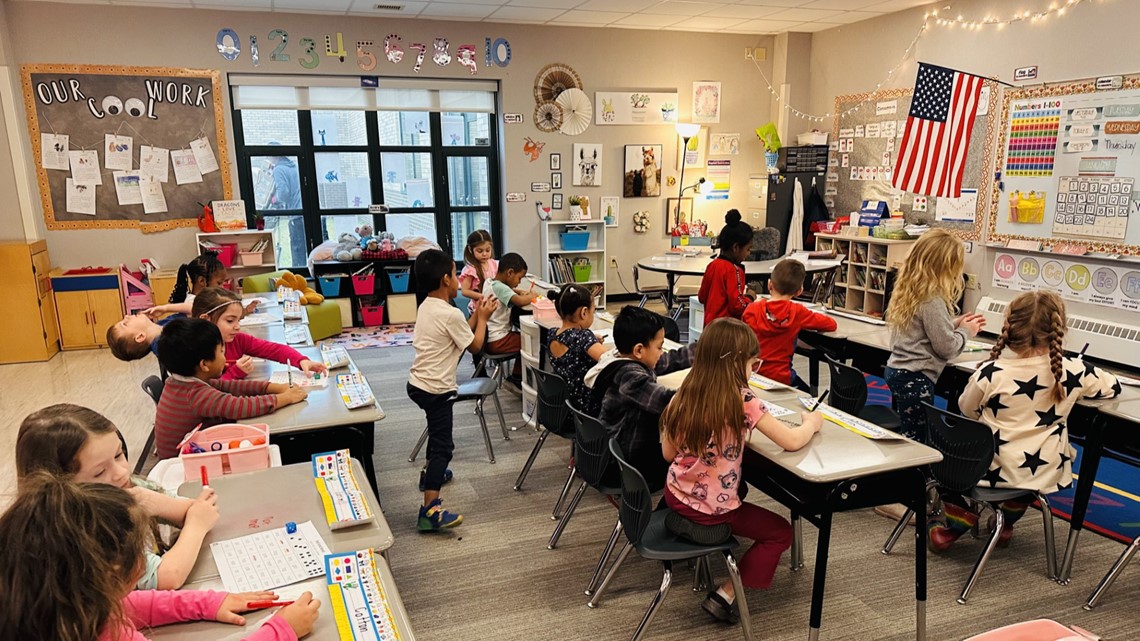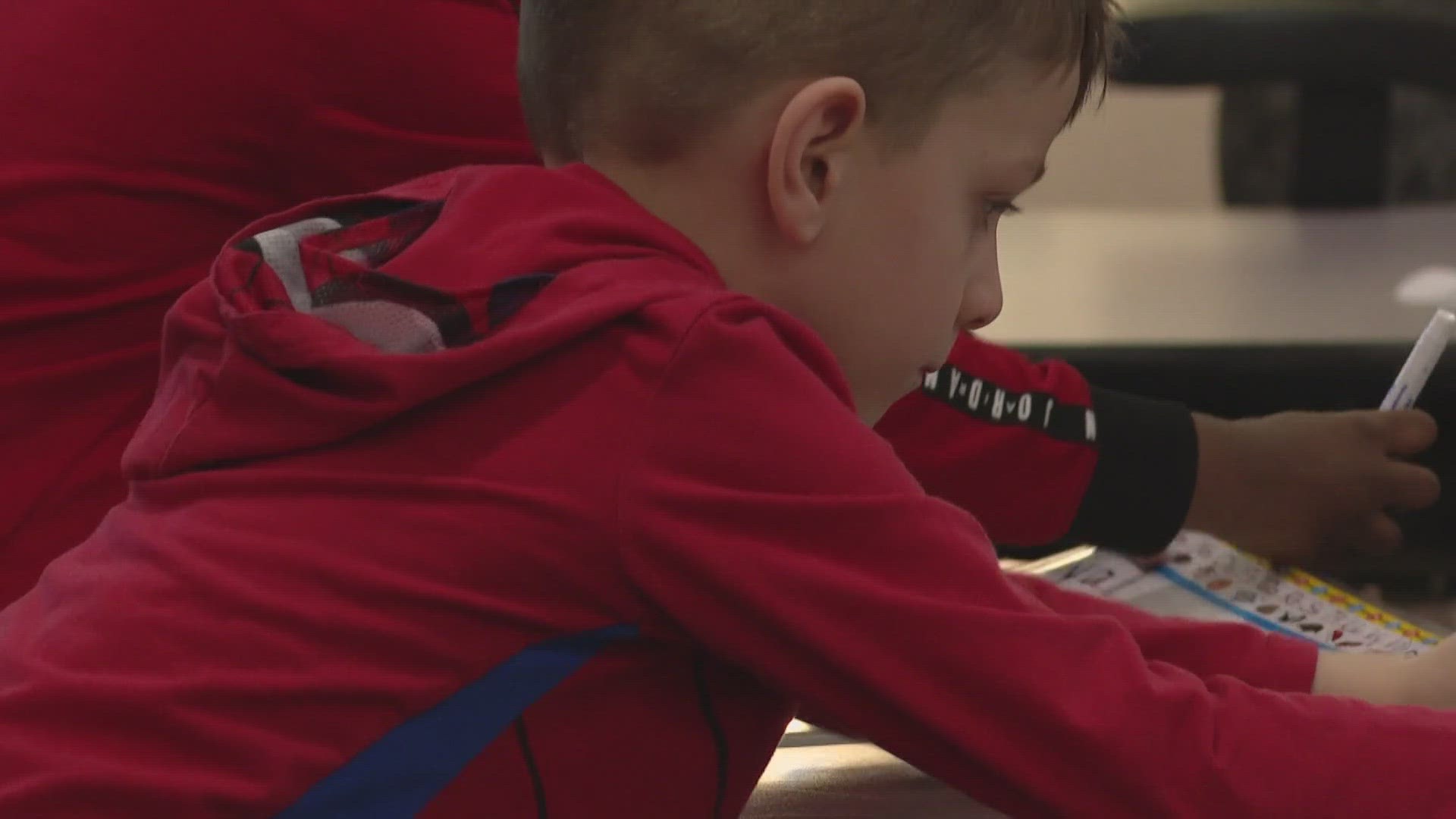INDIANAPOLIS — There is a reading crisis happening inside our schools, and it’s impacting some of our youngest students.
According to the Indiana Department of Education, one in five students can’t read by the end of third grade.
It’s why there is a new shift in how reading is being taught.
The shift was sparked by state legislation in 2023 that required Indiana schools to adopt “science of reading” methods. The law also requires teachers licensed after June 2025 must receive a literacy endorsement proving they are proficient in the principles.
The goal is to improve reading among Indiana’s K-12 students.
It’s something Dani Reiter is doing in her kindergarten classroom at Hornet Park Elementary in Beech Grove.
“We are all having to shift our mindset, right? We were doing something completely different before and now we are doing things a whole new way, but it’s a whole better way,” Reiter said.
Beech Grove City Schools fully adopted the model this school year after doing a pilot program and testing different curricula.
Reiter said that “science of reading” puts more of an emphasis on comprehension and phonics to decode words, instead of memorization.
Reiter said she can already see a difference with her students.
“It’s a game-changer,” Reiter said. “It’s been great to see kids take the time, look at a word and sound it out, tell me what it spells and then be able to write on top of that. It’s been amazing.”
To help with this change, the Lilly Endowment gave 28 colleges and universities $21.5 million in grants to help realign their teaching programs.
The University of Indianapolis received close to $750,000.
“Really making sure that they are prepared so when they go out to schools, they are prepared to teach in the world and the environment that they are in,” said Tracy Johnson, an assistant professor of K-6 literacy.
Johnson is one of the professors on the frontlines making sure future elementary teachers know how to incorporate the reading model into their lesson plans.
She said the "science of reading" isn’t that new, but rather old ideas revamped. It focuses on how the brain learns to read.


“A re-emphasis on, we need to make sure that our teachers are well-versed in those foundational skills and that we teach kids in an explicit and systematic way to learn how the English code works,” Johnson said.
One of those students is junior Audrey Campbell, who hopes one day to be an elementary school teacher.
She admits "science of reading" is also new for her and something she wasn’t taught.
“We did a lot of spelling tests and memorization. I remember going over it with my parents, and we would have flashcards,” Campbell said.
Now, she's looking to use her new skills to help her future students.
“Literacy is the foundation of all learning because you have to learn how to read in order to learn everything,” Campbell said.
It's something Reiter is doing right now in her Beech Grove classroom. She hopes that soon, her students won’t be learning to read but rather reading to learn.
“This is only the beginning for them, and they will get to just run with their new knowledge and keep building year after year,” Reiter said.
Some Indiana lawmakers believe this new method won’t solve the reading problem alone.
Currently, there is a bill at the Statehouse that looks to hold back third graders who are not proficient in reading. It would also give IREAD tests to second graders before they get to third grade.

